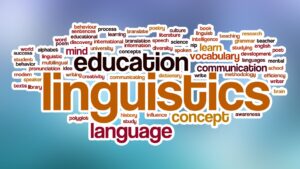
In the world of Bahasa Gaul, understanding the meaning behind phrases like Arti Effort Dalam Bahasa Gaul can unlock a whole new level of communication. Embracing the slang and nuances of informal language is essential for staying connected with today’s youth culture. Arti Effort Dalam Bahasa Gaul may sound simple, but its significance runs deep in the realm of casual conversations and online interactions.
Exploring the intricacies of Arti Effort Dalam Bahasa Gaulreveals how language evolves and adapts to modern trends. From deciphering hidden meanings to grasping the context behind everyday expressions, delving into slang enriches one’s linguistic skills and cultural awareness. Unveiling the layers of Arti Effort Dalam Bahasa Gaul opens doors to a vibrant world where words carry diverse interpretations and connections.
Arti Effort Dalam Bahasa Gaul
In the realm of Bahasa Gaul, Arti Effort Dalam Bahasa Gaul carries a nuanced connotation that transcends its literal translation. This term signifies more than just the literal meaning of “meaning of effort.” It is a phrase deeply embedded in the cultural fabric of Indonesian slang, reflecting a sense of acknowledgment, respect, and recognition for someone’s hard work or dedication. By unraveling the layers of Arti Effort Dalam Bahasa Gaul one gains insight into the values and attitudes held in high regard within the youth community.

Arti Effort serves as a form of verbal validation, expressing appreciation for an individual’s commitment and tenacity in achieving their goals. The phrase encapsulates a blend of admiration and encouragement, fostering a culture of support and recognition among peers. Understanding the subtleties of Arti Effort Dalam Bahasa Gaul allows one to navigate social interactions with a deeper understanding of the underlying sentiments and motivations driving such expressions.
In the vibrant landscape of Bahasa Gaul, Arti Effort Dalam Bahasa Gaulen capsulates a rich tapestry of meanings beyond its literal translation. It embodies a cultural acknowledgment of hard work and dedication, transcending mere words to convey deep respect and recognition for one’s endeavors. This phrase serves as a verbal affirmation, expressing admiration for individuals who demonstrate unwavering commitment and perseverance in pursuing their objectives. Within Indonesian slang, Arti Effort fosters a culture of mutual support and encouragement, reflecting the values cherished within the youth community. Delving into the nuances of this expression unveils the intricate dynamics of social interactions, offering insight into the underlying sentiments and ethos that shape interpersonal relationships.
Importance of Slang And Informal Language
In modern society, slang and informal language play a crucial role in shaping communication dynamics among various social groups. Slang terms often carry nuanced meanings, unique to specific cultures or communities, offering individuals an avenue to express themselves in a more casual and relatable manner. Informal language serves as a bridge for individuals to form connections and establish a sense of belonging within their peer groups.

- Slang fosters a sense of camaraderie and solidarity among individuals by creating shared linguistic codes that strengthen social bonds.
- Through the use of informal language, individuals can convey complex emotions and ideas in a succinct and accessible manner, facilitating clearer communication within interpersonal relationships.
- Embracing slang and informal language can also lead to a deeper understanding of cultural contexts and societal norms, allowing individuals to navigate social interactions with ease and adaptability.
By recognizing the significance of slang and informal language, individuals can cultivate stronger connections with others while gaining insights into the intricacies of human communication. The evolving nature of language reflects the ever-changing landscape of society, highlighting the importance of embracing linguistic diversity and the rich tapestry of expressions that shape our interactions.
Evolution of Language Trends
The Evolution of Language Trends reflects the dynamic nature of human communication. Slang and informal language have continuously evolved to adapt to cultural shifts and societal changes.
- New slang terms emerge regularly, influenced by various factors such as popular culture, technology, and social media.
- The adoption of slang words and expressions often signifies belonging to a particular group or subculture.
- The blending of languages in multicultural settings contributes to the diversification of slang vocabulary.
As language trends evolve, so do the modes of communication.

- Digital platforms have revolutionized the way people communicate, giving rise to new forms of slang and language shortcuts.
- Emojis, acronyms, and memes have become integral components of contemporary communication, shaping the landscape of informal language.
- The intersection of traditional and modern communication styles further enriches the linguistic tapestry, offering individuals a wide array of expressive tools.
Understanding the evolution of language trends is crucial for navigating the complexities of modern communication. By staying attuned to linguistic shifts and emerging expressions, individuals can effectively engage with diverse social groups and adapt to changing communication dynamics.
Deciphering Hidden Meanings
When delving into slang expressions, it’s essential to grasp the underlying subtleties that convey meanings beyond literal interpretation. Often, slang terms carry nuanced connotations that reflect cultural references or inside jokes within specific social circles.

Understanding the context in which slang phrases are used is key to unlocking their intended messages. This involves interpreting tone, body language, and shared experiences among individuals employing these colloquial expressions.
Moreover, the evolution of digital communication has further obscured meanings behind slang, with emojis and acronyms adding layers of complexity to deciphering messages. In this dynamic landscape, staying attuned to the constantly shifting linguistic trends is crucial for effective communication.
Embracing Linguistic Diversity
In today’s interconnected world, Embracing Linguistic Diversity is essential for effective communication. Language is not static; it evolves and adapts to cultural influences, creating rich tapestries of expressions.
Slang and informal language play a vital role in reflecting the nuances and complexities of diverse communities. Embracing Linguistic Diversity means recognizing the value of different linguistic styles and expressions in fostering understanding and connection.

Understanding and appreciating the cultural nuances embedded in slang terms is crucial for navigating the intricacies of modern communication. Embracing linguistic diversity involves celebrating the unique expressions that various communities bring to the table.
In a globalized world, the ability to navigate and adapt to different linguistic styles is a valuable skill. Embracing Linguistic Diversity empowers individuals to connect with others, bridging gaps and fostering mutual understanding.
Embracing linguistic diversity is key to effective communication in our interconnected world. By recognizing and celebrating different linguistic styles, individuals can connect with others on a deeper level. Slang and informal language play a vital role in reflecting the nuances of communities, fostering understanding, and building connections. As language continues to evolve and adapt to cultural influences, embracing linguistic diversity empowers individuals to navigate various linguistic styles confidently. It enables them to engage with others from diverse backgrounds, promoting mutual understanding in today’s globalized society. Celebrating unique expressions and valuing linguistic diversity enriches communication, creating a more inclusive and interconnected world.






